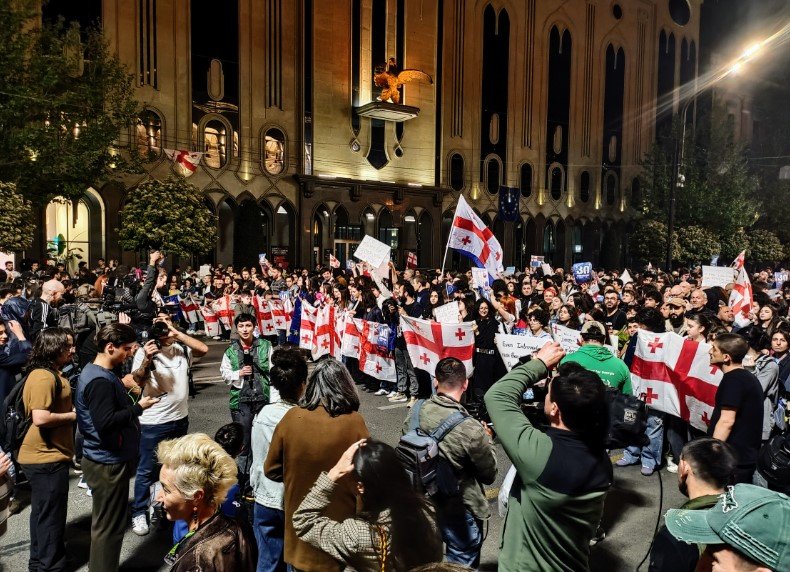Leading human rights organizations called on the European Union to step up pressure on Georgia over its ongoing crackdown on civil society. The push comes amid fresh reports of asset freezes and arrests that have sparked global concern in 2025.
Background of Georgia’s Civil Society Crisis
Georgia has faced growing unrest since the disputed 2024 parliamentary elections. Protests erupted over claims of vote rigging and the government’s halt on EU membership talks.
The ruling Georgian Dream party passed a foreign influence law that critics say mirrors Russian tactics to silence dissent. This led to widespread demonstrations, with police using force against peaceful crowds.
In recent months, authorities have targeted non-governmental organizations with financial restrictions. These moves have drawn sharp criticism from international watchers who see them as a slide toward authoritarian rule.
Experts point to a pattern of repression, including arbitrary detentions and attacks on journalists. The crisis has deepened in 2025, with reports of gender-based violence during protests adding to the human rights concerns.

Key Demands from Human Rights Organizations
Nine global groups, including prominent advocates for freedom, issued a joint statement on September 10, 2025. They urged the EU to condemn Georgia’s actions publicly and align with guidelines on protecting human rights defenders.
The statement highlights violations of international treaties and calls for a unified EU response at the United Nations. It stresses the need for diplomatic tools to push Georgia to reverse course.
- Public condemnation of attacks on civil society groups.
- Joint statement at the UN Human Rights Council session.
- Activation of mechanisms like the OSCE Moscow Mechanism for accountability.
- Support for local NGOs facing asset freezes and harassment.
These demands aim to protect democratic voices in Georgia. Advocates argue that without strong intervention, the repression could worsen and derail the country’s European path.
The groups also called for legal protections and secure funding channels for affected organizations. This reflects a broader push to safeguard civil liberties in the region.
EU’s Response and Past Actions
The EU has taken some steps but faces calls for more decisive action. In February 2025, the European Parliament passed a resolution rejecting the legitimacy of Georgia’s new government.
Officials have warned of potential cuts to funding and aid if reforms do not happen. High-level talks in Brussels have discussed sanctions on key Georgian figures involved in the crackdown.
Despite these efforts, critics say the response has been too slow. Member states are divided on how far to go, balancing diplomacy with human rights priorities.
Recent meetings show growing consensus for coordinated measures. The EU’s foreign policy chief has signaled readiness to use all available tools to address the crisis.
Impact on Georgian Society and Economy
The repression has chilled free speech and activism in Georgia. Many NGOs report frozen bank accounts, halting their work on elections and democracy.
This has broader effects, scaring off investors and hurting tourism. Economic data from 2025 shows a dip in foreign direct investment linked to political instability.
| Key Impacts | Description | Estimated Scale in 2025 |
|---|---|---|
| NGO Closures | Over a dozen groups face shutdowns due to funding blocks. | Affecting 50+ organizations |
| Protest Arrests | Hundreds detained since late 2024. | Up to 500 cases reported |
| Economic Loss | Decline in EU aid and investments. | Loss of €200 million in potential funding |
| Human Rights Violations | Reports of beatings and surveillance. | Documented in over 100 incidents |
Citizens feel the strain, with youth and women hit hardest by the crackdown. Stories of personal hardship, like activists losing jobs, highlight the human cost.
The situation risks isolating Georgia from Western partners. Logical reasoning suggests that continued repression could lead to brain drain, as skilled professionals leave for safer countries.
International Reactions and Broader Context
Global leaders have voiced alarm over Georgia’s direction. The United States issued a human rights report in 2025 detailing abuses, urging allies to act.
Neighboring countries watch closely, fearing spillover effects in the region. Recent events, like similar laws in other post-Soviet states, add to the urgency.
Analysts connect this to Russia’s influence, seeing it as part of a wider battle for democracy. The 2025 Eastern Partnership Index notes Georgia’s drift from European values.
Public sentiment, as seen in social media trends, shows strong support for pro-democracy forces. This ties into global trends of resisting authoritarianism in 2025.
What Lies Ahead for Georgia and the EU
The coming weeks could see key decisions at EU summits. If pressure builds, Georgia might face targeted sanctions or aid suspensions.
Experts predict that without change, protests could reignite, leading to more instability. The path forward depends on international unity and local resilience.
For readers concerned about global human rights, staying informed helps. Share this article and comment below on what you think the EU should do next to support Georgia’s civil society.
